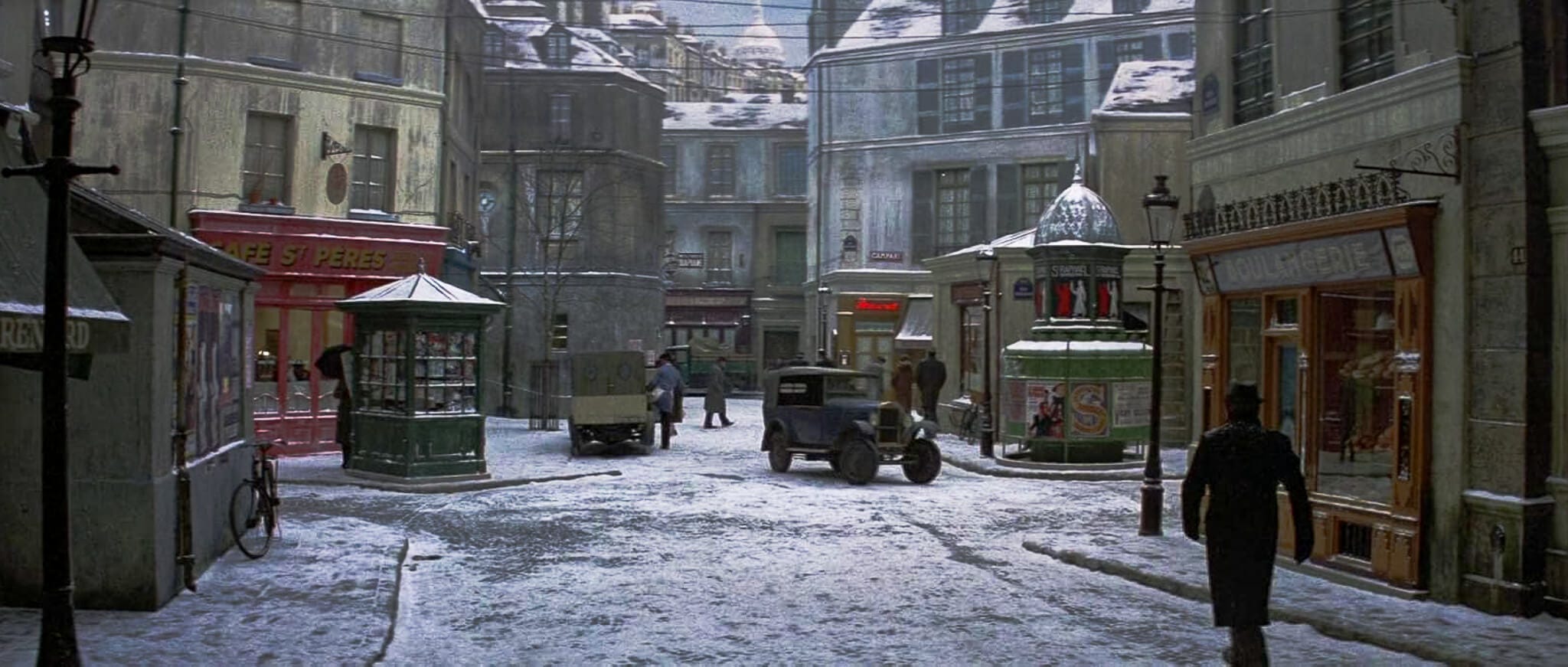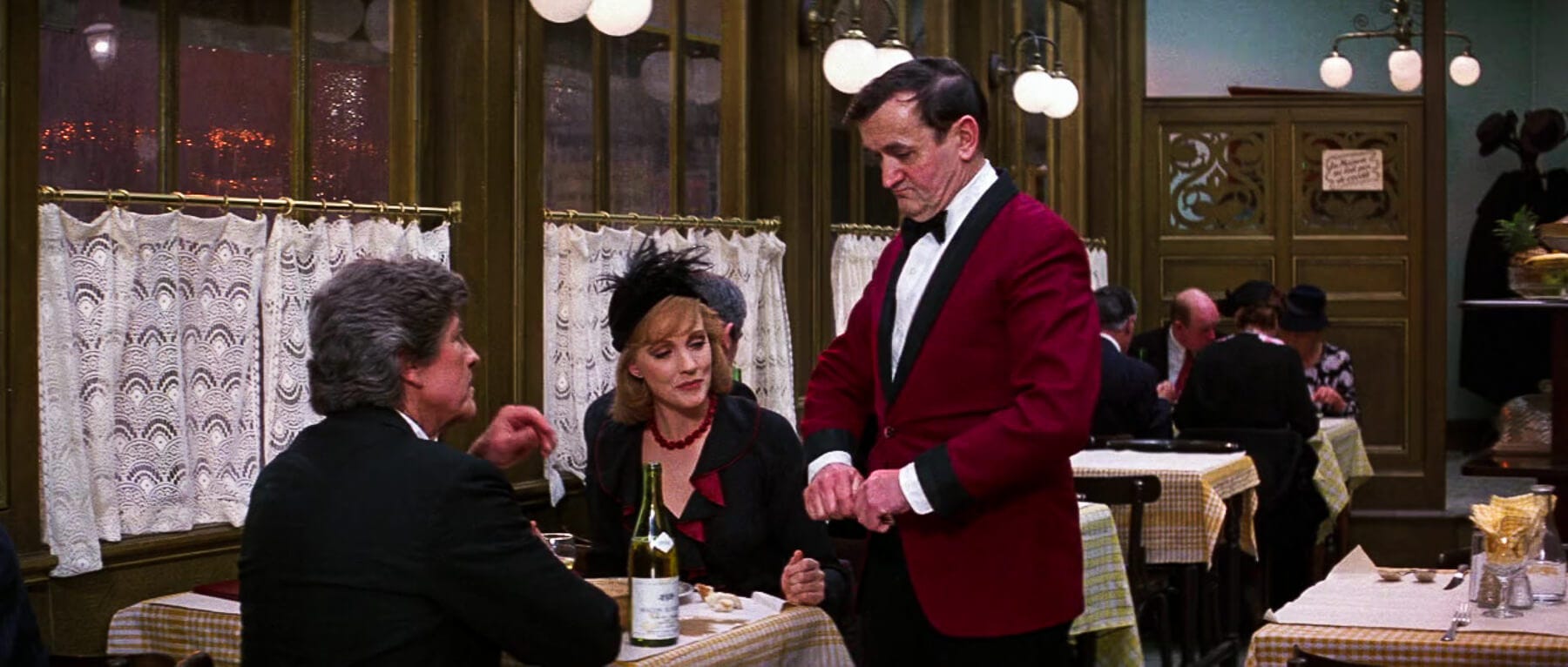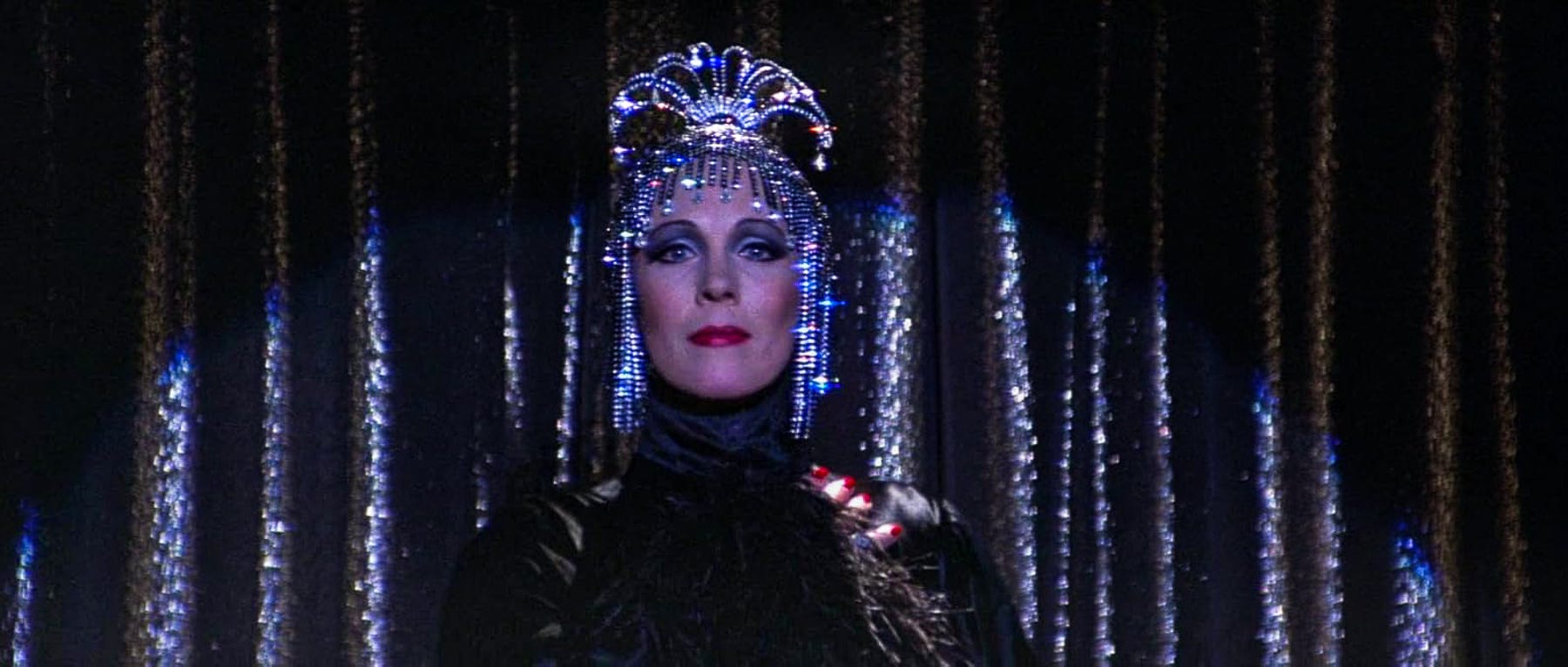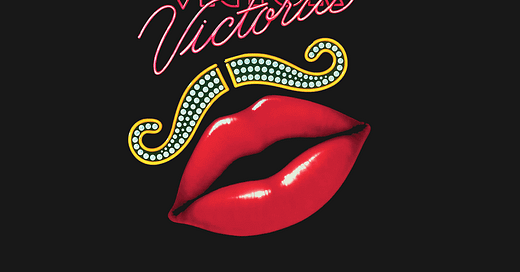🎧 [PLAYBACK: SOUND ON]
First, cue up Henry Mancini’s Oscar-winning score while you read.
🟢 For the full listen, open the score in Spotify and set the tone right.
The Musical For People Who Hate Musicals
I honestly can’t remember a time when I hadn’t seen Victor/Victoria.
Initially, I was probably eight, catching it on cable, and instantly became obsessed. It felt like being whisked away to a 1930s Parisian theme park, where Mary Poppins swapped her umbrella for a tux and a top hat and, frankly, looked all the hotter for it.
Did I grasp all the layers—the subversion, the gender play, half the jokes? Absolutely not. If I recall, I even had to look up the word “horny” afterward. But I was utterly transfixed anyway.
I’ve slotted this in the pole position on my list of “Musicals for People Who Hate Musicals,” precisely because it’s the archetype of an entry that even doesn’t ask you to like the genre.
No whimsical plot devices forcing characters to burst into song-and-dance while grocery shopping. No need to suspend disbelief. Everyone’s singing because they’re supposed to be singing—on stage, in clubs, rehearsing acts.
The songs are simply part of this Crazy World, not some fantastical break from it.

No False Fronts, All Fabulous
What really locked me in then—and still does—is how fully realized that world is.
Instead of shooting on location as originally planned, budget constraints (which he admittedly blew past) forced Edwards to recreate his entire period cityscape across 15 interconnected soundstages at Pinewood Studios.
Lucky for us, it freed him up to design a Paris that feels like a cabaret-infused fever dream: neon-lit boulevards, gleaming Art Deco bars, bustling brasseries, velvet-draped nightclubs.
Not a false front in sight—you could practically walk the whole set through its snowswept cobblestone streets. It’s the kind of place you want to crawl into and explore. Hell, I’ve been to the City of Lights plenty of times, yet I still want to book a weekend trip to Edwards’ version that I’m certain never really existed.
Gender Games & Genre Hacking
How do we land in this glittering magic box to begin with? Julie Andrews (The Sound of Music) plays Victoria Grant, a down-on-her-luck singer in Depression-era Paris, who, at the encouragement of her newfound gay friend Toddy (Robert Preston), decides to masquerade as a man impersonating a woman to land a gig.
Cue gender confusion, mistaken identities, and enough romantic chaos to power half a season of Schitt’s Creek.
And no, the illusion was never about perfect believability—it’s about the performance, the playfulness, the sheer joy of the con.
Edwards lifted the concept from the 1933 German comedy Viktor und Viktoria, but to be clear, this remake leaves the original in the dust.
What’s even more impressive is how Victor/Victoria takes 1930s attitudes toward sexuality, filters them through early-80s sensibilities, and still winds up about 15 years ahead of most of Hollywood’s curve on the subject. All the more remarkable considering this was the same year Arthur Hiller’s Making Love came out and effectively ended careers in a cloud of moral panic.
Edwards’ picture, by contrast, threaded the needle with audiences, walking away with statuettes and a permanent spot in cinema history.
But make no mistake—this is a comedy first and foremost, musical second.
The gags land even harder than the high notes, with Edwards’ sharp timing letting everything from slapstick hotel farces to sly double entendres hit so well that the AFI still lists Victor/Victoria on their 100 Funniest American Movies of All Time.
When the music does kick in, it’s woven seamlessly into the performances.
“Le Jazz Hot” and “The Shady Dame from Seville” might be all-time bangers, but they never interrupt the narrative—they’re part of the show within the show, just another extension of the film’s playful wit.

The Secret Sauce
Credit where it's due: Julie Andrews may deservedly command center stage, but it’s Preston and Warren who nearly walk off with the whole shebang.
Robert Preston (The Music Man, Semi-Tough) deliciously shreds his 70s tough guy image, leaning full force into playing a flamboyant lounge singer, dropping quips like he’s been waiting his entire life to deliver them—playfully bitchy and perfectly timed. If there’s a patron saint of scene-stealers, it’s him.
But it’s Lesley Ann Warren (Clue, Color of Night) who proves the film’s true secret sauce, nailing her ditzy moll character with surprising depth and charm. Her reaction to realizing that her macho gangster boyfriend, James Garner (The Great Escape, Maverick), was ogling a “female impersonator” throughout her debut performance is the stuff of legend.
The Academy wasn’t blind either—seven Oscar nods, including Andrews, Preston, and Warren, plus a win for Henry Mancini’s jazzy score. No wonder it holds up as the rare musical that can win over even the staunchest of genre skeptics—like me—because it’s not just a musical. It’s a perfect little world unto itself.
Eight-year-old me never stood a chance.

ENCORE APPLAUSE:
+ 3 points for Graham Stark as perhaps the most memorable waiter in cinema history. Tip fully earned, my friend!
+ 3 points for casting Blake Edwards’ uncredited son to check out his own stepmom, calling her “divine” while she’s rehearsing as “Victor”
+ 5 points for ex-NFLer Alex Karras (aka Webster’s dad) fully going there in 1982. Proving that the quiet ones often land the wildest punches.
+ 5 points for NYT film critic Vincent Canby noting, “the only depressing thing about it is the suspicion that Mr. Edwards is going to have a terrible time trying to top it.” Indeed, he never came close.
+ 10 points for Bob Preston going for broke with that final number in a single, uninterrupted take with Edwards capturing the real-time reaction of the audience
If you only ever see one musical… well, other than The Wizard of Oz (practically required viewing at birth), this is the one it should be.
A must-see film. Preferably with favored libation in hand, if so inclined.
📊 [PLAYBACK: PERFORMANCE]
Budget: $15M in 1982, or approximately $47M today
Domestic Box Office: $28.2M ($87M now)
*Adjusted as of 2025
Cinema DEFCON Threat Assessment:
201 Days — Theatrical-to-VHS WindowVerdict
Strutted to seven Oscar noms and one win. Re-released just eight months later, it doubled its production budget—but thanks to cost overruns and studio math, MGM still claimed $22M in unrecouped costs. Lavish, lauded, and legally tangled. More than six months to reach home video? Easy DEFCON 5.
🎬 [PLAYBACK: TRAILER]
The original theatrical trailer sells all the gleeful mayhem that Edwards was about to unleash upon unsuspecting early ‘80s audiences.










